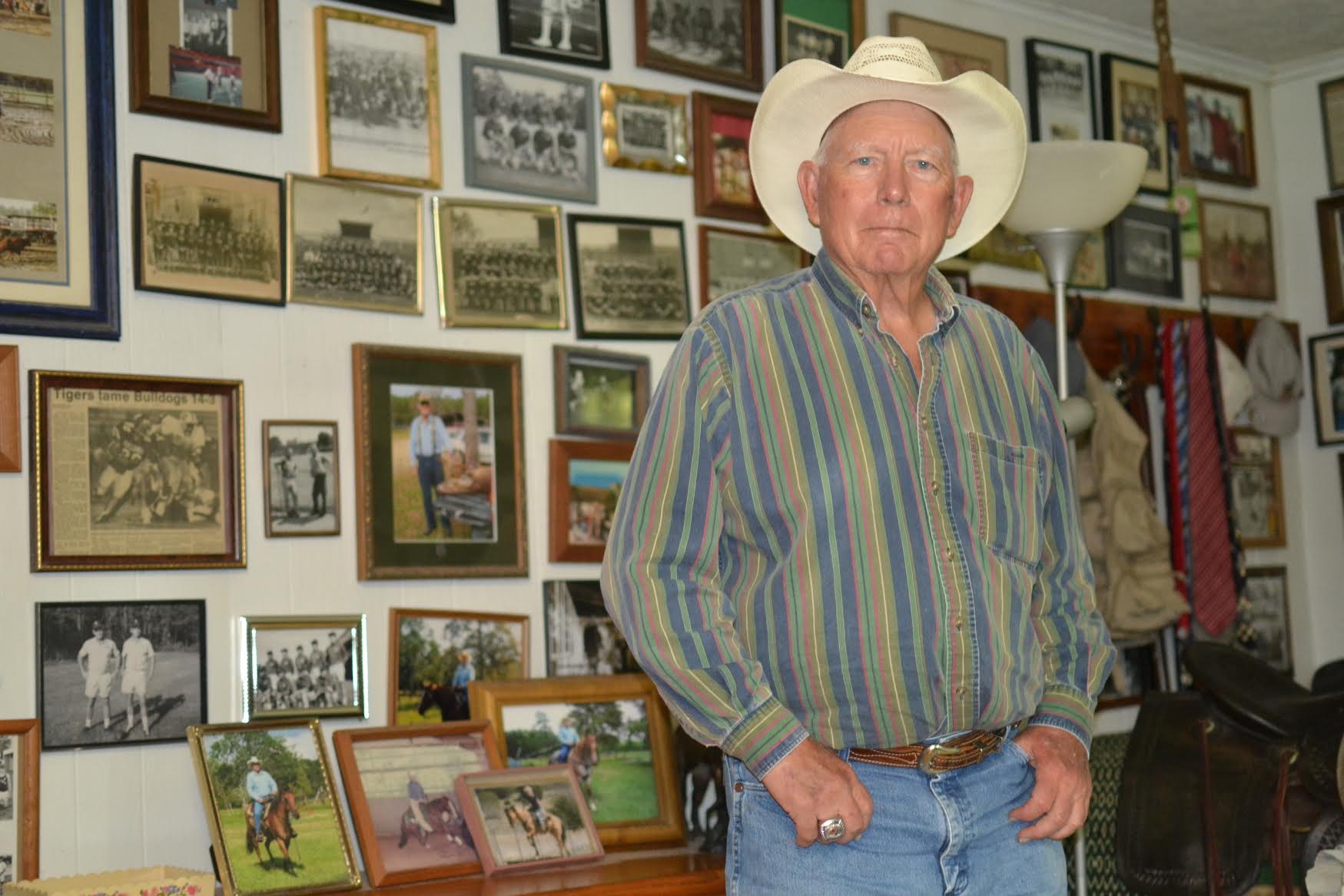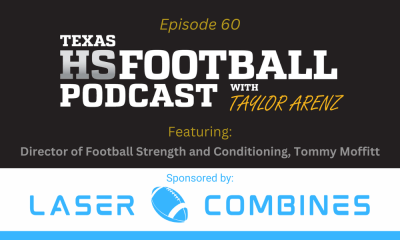
Editor’s note: This story can also be found in the Silsbee Bee here.
Parkinson’s Disease can sideline just about anyone. But one old Texas high school football coach grabbed the disease by the face mask, looked it in the eye and said bring on the challenge.
Thanks to a procedure that goes through the brain and stimulates the body back to normalcy, former long-time Silsbee coach Charlie Woodard shook off the shakes and is walking tall and proud again.
Woodard in late April and early May traveled to Austin to receive deep brain stimulation (DBS), a procedure to alleviate tremors in Parkinson’s patients. In Woodard’s case, it helped him move his legs again and prevent him from constantly falling.
“I would highly recommend this procedure for anyone who has Parkinson’s and gets approved through screening,” Woodard said from his Silsbee home this week.
Woodard grew up in Silsbee and played quarterback at Silsbee High. He graduated from Lamar University and took a job as an assistant coach for the Silsbee football team in 1967, where he remained as an assistant until 1986 when he became the head coach. He had chances to leave, but his love for the town and area kept him.
“It’s the only job I ever had,” Woodard said. “Silsbee is a place that’s hard to leave. We had an excellent administration, school, school board, fans and we always had great athletes.”
Though he retired in 1998 after 12 years as head coach and 31 total as a mentor at Silsbee, he always referred to his former athletes as his “boys.” So when Woodard got diagnosed with Parkinson’s Disease about six years ago, many of his boys came back to check up on him.
Things went along finely until one day his disease became more noticeable and debilitating. While out riding one of his horses, his left foot froze up and he couldn’t adjust the spur on that boot, nor could he use that leg to transfer weight to dismount his horse.
The ole coach didn’t experience violent shaking that’s usually more prominent, but he experienced his left foot freezing, or staying still despite his brain telling it to move. He started to fall every now and then, and it eventually happened up to 3-4 times a month, according to his wife, Sherry.
“This January he fell 14 times,” Sherry said.
Charlie never developed violent tremors, but he did shake quite a bit when he got nervous, like the time he spoke at the funeral of a former player. The thing that bothered him most was when his left foot would “freeze,” preventing him from lifting his leg and sometimes resulting in falling down.
The falls became worse and more frequent, and the shakes started becoming more visible when a family friend suggested the DBS procedure that helped out one of their friends. And just like making a halftime adjustment, the coach decided to try something other than merely medication for his Parkinson’s.
The DBS procedure happens in three phases, with two of them slicing into the brain.
Charlie and Sherry drove to Austin and stayed with their daughter, Molly. During their time in Austin, Sherry said that she and her husband would’ve been lost without the help of their daughter.
He saw a neurologist in Austin who has a team of people including a neurosurgeon, a programmer, nurse, nutritionist and a physical therapist. The national success rate of this surgery is 98 percent, and Charlie said his doctor’s success rate is even higher at 99.998 percent.
Phase I happened April 28 when they shaved his head and the surgeon skillfully drilled five holes into Charlie’s skull and brain.
“It didn’t really hurt, it just sounded loud. Like rocks rolling around,” he said.
Phase II took place the next day when they inserted wires into those five holes. The neurologist pinpointed where the probes needed to be and the surgeon masterfully inserted them. The neurologists gets his information via MRI. Charlie said he was conscious about half the time during this procedure. Also during this phase, they snake the wires (probes) through his collarbone and into a generator that’s surgically implanted in his abdomen.
Phase III took place three days later on May 2 when they programmed the wires and generator. And just like that, the old coach was up pacing again, but this time with a whole new outlook.
Charlie Woodard, now 75, has a new lease on life. He’s no longer conscious about the way he walks or looks in front of other folks, and it doesn’t hinder activities he now might choose to do.
“I don’t have to think as much about walking or balance,” he said. “My energy level is back up and my speech is getting better. It’s a whole new quality of life.”
Today he can still tell you about certain plays that happened in certain games, including downs and distances, scores and names of the opposing players. The disease he obtained never took away his sharp mind.
Silsbee made the playoffs two rounds deep in 1967 and 1968 — Woodard’s first two years as an assistant. They made it back in 1971, and the Tigers made it to the Class 3A state semifinals in 1977.
Woodard was the head coach from 1986-1997, taking his team to the area round of the playoffs three times. He retired in 1998 after 31 years at Silsbee.
He likes to visit their farm and he’s taken up golf in the last five years. He’s scheduled to play a tournament this weekend.
He has a room in his house that looks like a coaching shrine, with photos of former players and teams and old newspaper clippings. He can point out which players made it to the pros, tell you about what happened in the big win over Jasper for the district championship or tell you the names of horses in some of the photos.
Charlie Woodard had a career record of 66-57-1 as a head coach.
But more importantly as a man, he’s got an even more impressive record: Charlie 1, Parkinson’s 0.
Brought to you by:


















